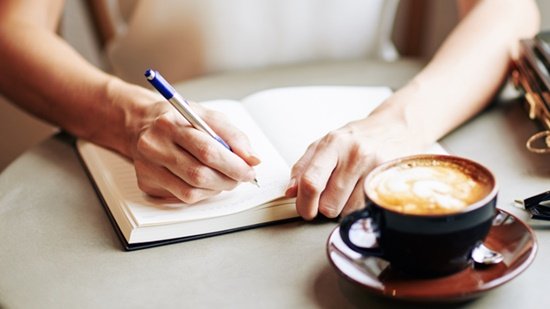Posted on 21st September, 2020

For many, journaling means writing down thoughts - ideas, feelings, and inspirations. It's like writing a diary, but it is more than that. Journaling is a simple method that helps to release stress and reduce anxiety.
Additionally, to writing down memories and experiences as in a diary, journaling helps in self-knowing, self-reflection, and personal growth. Journaling is an excellent tool to clear the mind and release mental blockages. It is an efficient method that helps to understand our desires, goals, priorities, but also our fears and worries.
In their book "The Writing Cure: How Expressive Writing Promotes Health and Emotional Well-Being" Stephan J. Lepore, professor of Social and Behavioral Sciences, and Joshua Morrison Smyth, professor of Biobehavioral Health and Medicine, present several illustrations of clinical applications for this method. The book contains examples of how expressive writing can improve the immune system, reduce psychological distress, enhance social role functioning and increase overall well-being. Journaling helps to structure our thoughts, feelings, and experiences. This will bring clarity, a higher perspective of the current situation, and will help us understand the meaning of our daily lessons.
If you never tried journaling before, start with brief sessions, to build the habit of journaling, and create a new daily or weekly routine. Even one session per week can be beneficial. Take some time to relax and write down what went well and what went wrong in the past day or week. What do you want to improve? Write about your successes and failures. An important key to efficient journaling is, to be honest with yourself. Once you get used to journaling and experience its benefits, you will want to do it every day. Journaling will improve your problem-solving skills. This simple, yet so effective method was used by many people to help in recovering from traumatic experiences.
You can start writing in your journal whenever you like. However, based on my own experiences, there are two times when journaling is most effective. Morning journaling helps to clear your thoughts and start the day with a positive attitude. You can also release worries and anxiety and focus on the positive aspects of the upcoming day. By using positive affirmations, you can set an intention for your day. Start your day by writing down your desires and aspirations, everything that you want to achieve throughout the day. This will help you focus on your goals and priorities. The evening can be also a great time for your journaling session. It is the right time to reflect on your day's successes or failures. You can write your inspirations for improvement. It will help you let go of your day's experiences and relax.
I love journaling, it helps me to be aware and grateful for the amazing things in my life. It is a simple and effective method for spiritual growth and transformation. Journaling is part of my daily routine, I highly recommend you to find out if journaling works out for you. I am sure that using this method regularly with perseverance, will help to improve your life for the better. For more insights, I invite you to read my books.
My dear, what are your experiences with journaling?